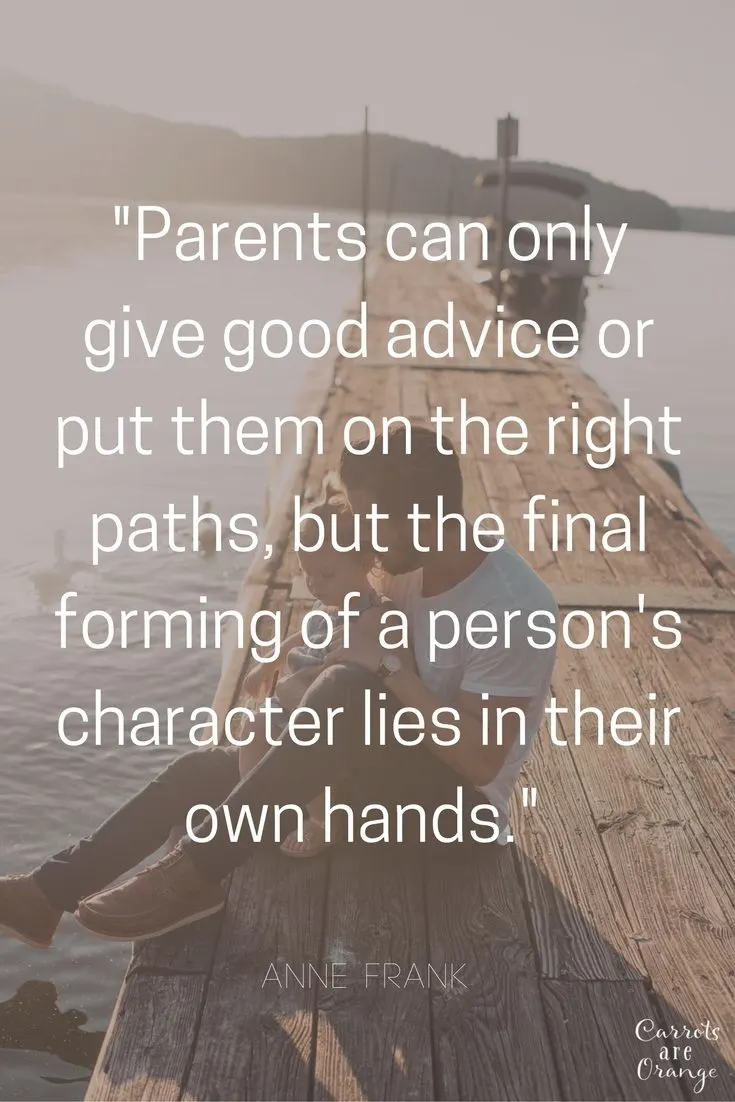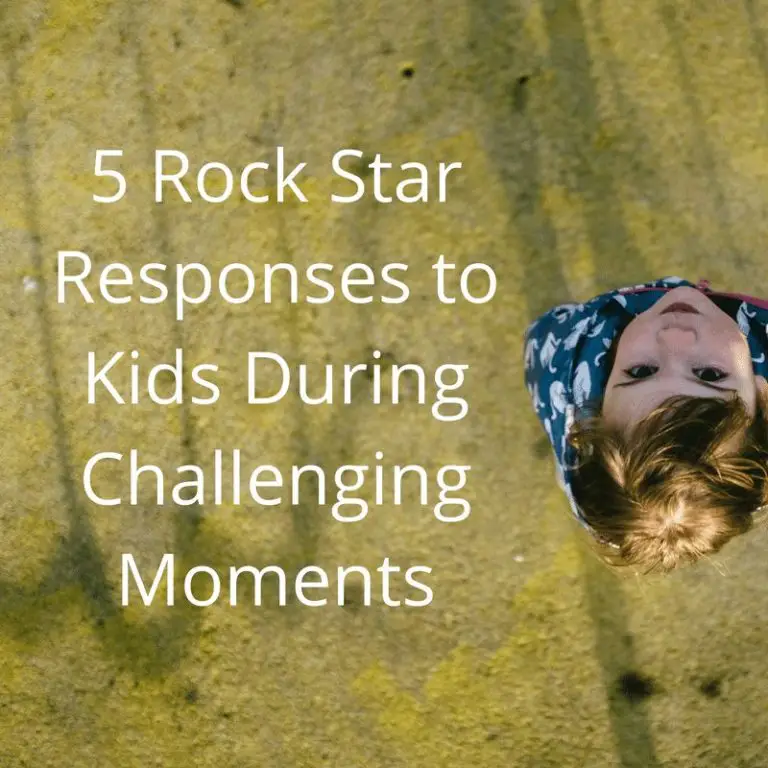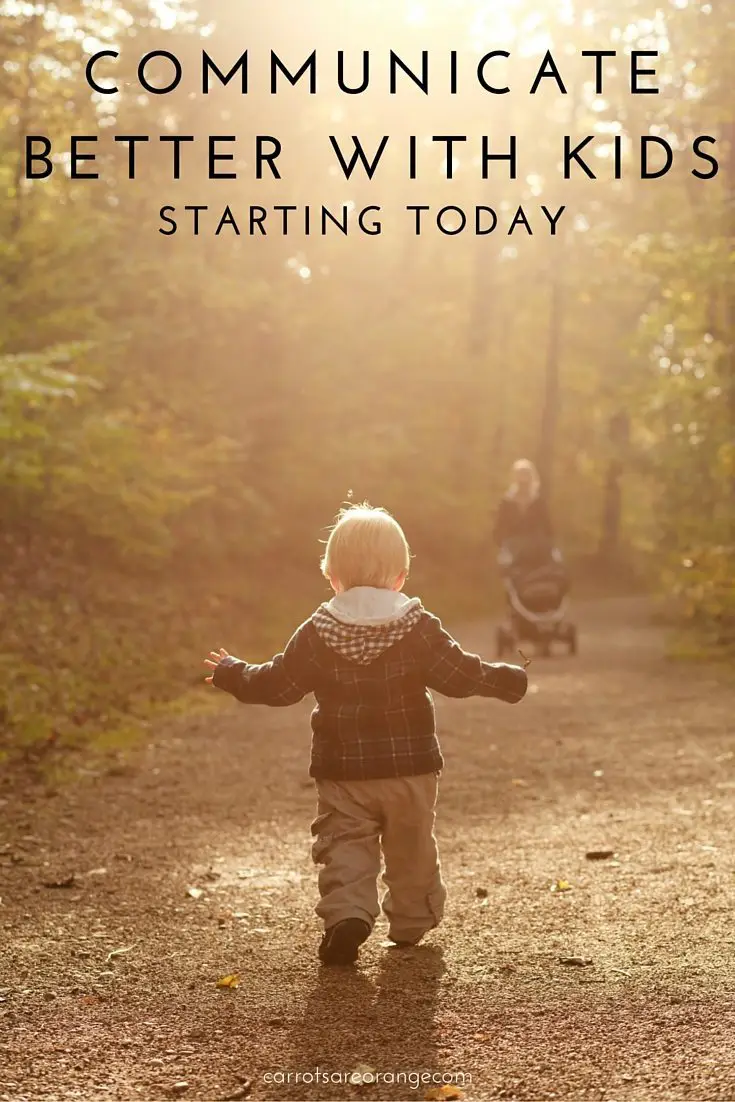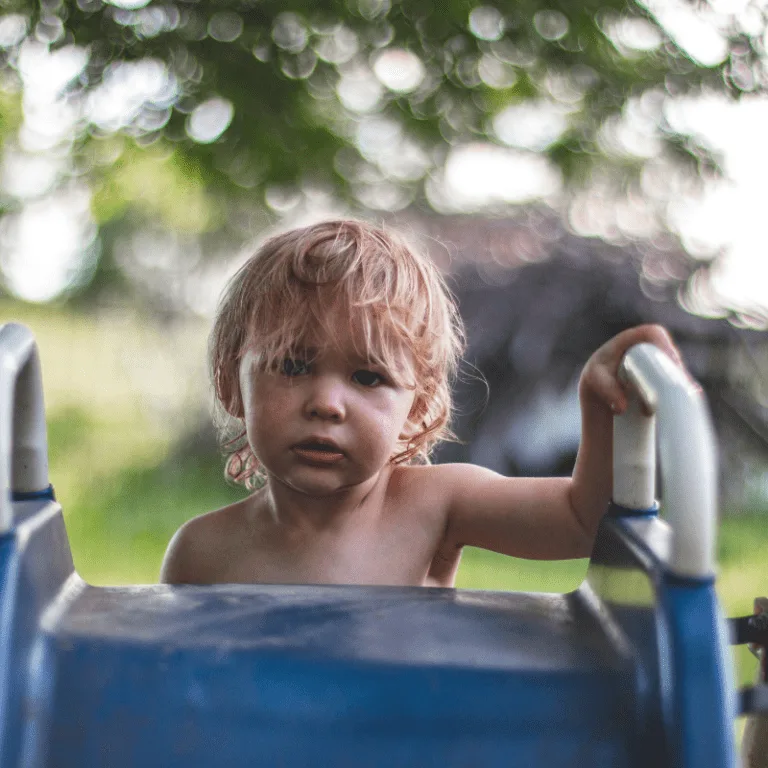How do you discipline a 3-year-old without shutting him down? To put it another way, how do you discipline a child in a way that he actually learns something from the experience? That is the question I repeatedly asked myself as a new parent. Then I discovered Montessori and positive parenting.

Turns out Montessori and positive parenting approach to discipline and communication have a lot in common. For example, respecting the child, a keen eye on developing social & emotional intelligence, and an attitude that failure is a part of the learning process.
Lucky for me, without even knowing it, my husband curated a list of responses akin to those responses offered by parenting experts to help adults better respond to kids during tough moments. Positive discipline responses are not as easy as they first may appear. Although this is not the first time my husband has organically come up with effective parenting responses. I am one lucky lady.
What is Positive Discipline?
We should take a step back to ask “what is positive discipline?” This approach is about non-punitive approaches to discipline. It seems a bit backward but if we take on a different approach, one that is more focused on helping the child with self-discipline, the child and the parent greatly benefit. Positive discipline is not about control or the short-term. We need to step back to understand what the children are feeling and what is behind the behavior.
The woman in this video is Jane Nelsen, a pioneer in the positive discipline approach. She outlines 5 criteria for positive discipline:
- Be kind, yet firm
- Help children feel a sense of belonging & significance
- Focused on long-term, not just short-term
- Valuable social & life skills including conflict resolution and problem-solving
- Helping the child develop a sense of ownership & personal responsibility. In other words, a child comes to realize she is capable of managing her emotions and carrying herself throughout life.
Positive Parenting Responses
How do we get kids to listen? I have a few ideas for you to tuck away in your back pocket, to practice communicating with kids. Over time, these responses will seem like second nature to you. I promise.

How to Respond to Kids Effectively
Ranking up there with communicating with a toddler and helping kids resolve conflict, this question is tough and rightfully so. I do have a few ideas to share with you that work well in our home. Let me know how they work for you!
Respond to Kids with these rock star phrases and you are on your way to communicating better than ever! Communicating with kids is tough. Learn more about five responses that work to communicate with kids more effectively during challenging moments.
Related Post: Positive Parenting 101
I am not the perfect parent but I try really hard. I read a lot and take in advice from many friends and family members. So, here are five effective responses (honed down from much more) that I’ve tested with my sons.

Positive Parenting & Getting Kids to Listen
#1 – Put an End to Potty Talk
“Do heroes say ‘stupid’?” My husband rocks this one. My boys are obsessed with heroes in myths, especially. So my husband says to them, ‘talk like a hero.’ It works.
#2 – On Not Giving Up
“You are good at hard things.” What child doesn’t have trouble when he reaches a challenge? Most do. My husband also coined this one. Reminding our children that it is okay to be afraid when tackling hard things in life, but that hard things are worth embracing is key.
#3 – Help Me, Help You
“We are problem solvers in this family.” So we’ve stumbled upon an obstacle. ‘Mom, I can’t do this…I need your help.’ Are we adults always going to put that puzzle piece in its right spot or wedge that Lego to fit just right? If we give our children the opportunity to solve their own problems, they’ll not only learn that ‘skill’ but they’ll gain a huge amount of self-confidence. Tough to beat that result.
Model the patience required to finish a task or creatively problem-solve with your children by asking them questions. For example, a few weeks ago my 3-year-old was having trouble getting into a bouncy house. He was frustrated and asked for my help. So I asked him: ‘what if you stood back a bit and got a running start?’ Sure enough, he made it on his second try.

#4 – “Telling On” Other Kids
“You need to go speak to him about it. Would you like me to come with you?” or “What did he say when you let him know how it made you feel?” My biggest pet peeve is the tattletale. Kids always seem to whine directly and immediately to the nearest adult. Encouraging children to speak directly to their peer about the behavior may be daunting for the child. So, at first, guide him by saying: ‘let him know that you didn’t like it when he hit you. Ask him nicely to not hit again, or maybe just say, ‘No, thank you.’ Also, asking the child ‘that’s sounds rough. How did J feel when you told him how that made you feel?’
#5 – Lack of Empathy
“You’re a kind person. Kind people do not treat others in that way.” I speak truthfully. My sons are kind people. Let’s be honest, most children are kind at heart. What they are not naturally is empathetic. The world seems to revolve around each and every one of them for what seems like an eternity. Here is the thing, though, we adults can guide children and model empathy. I remind my sons that they are kind. Then I ask them “how they would feel if…” and “how do you think she feels after you called her ‘stupid’?” They stop and they think about…that moment of reflection is enough to nurture emotional development.
Also, here are a few of my favorite books to teach children about their feelings in case you’re interested!
Positive Parenting Resources that Help Me Stay Calm
- Journal to write out my thoughts & the most amazing pen in the universe
- Any of Amanda Reuter’s Parenting Courses for Moms
- Drink a nice, warm cup of tea
- No Drama Discipline by Dan Seigel
- Positive Parenting by Jane Nelsen
- Positive Things to Say to Your Child During Negative Moments
Marnie
